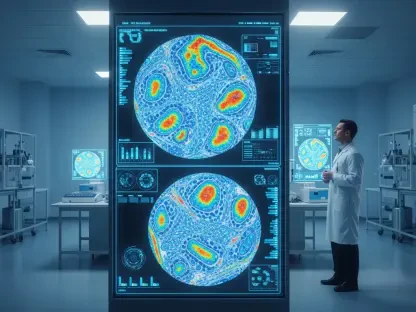Mexico is at the forefront of a digital health revolution, particularly in the realm of Electronic Health Records (EHR). This rapid transformation is driven by a combination of government initiatives, regulatory changes, and a growing demand for modernized healthcare systems. The country’s commitment to digital health is not only transforming patient care but also creating significant growth opportunities for both local and international EHR vendors. As Mexico continues to invest in and adopt these digital solutions, it is setting a new standard for healthcare innovation in Latin America and beyond.
Government Initiatives and Policies
Mexico’s government has been a key driver in the adoption of EHR systems, laying a strong foundation for digital health innovation through various initiatives and policies. The enactment of the General Health Law, which promotes the use of telemedicine and electronic medical records, has facilitated the nationwide adoption of EHR systems. In 2022, the Ministry of Health increased funding for digital health initiatives, leading to a significant rise in public-sector EHR implementations. These investments are crucial for expanding access to quality healthcare across Mexico, particularly in underserved regions.
These government efforts go beyond mere funding; they also focus on creating a conducive regulatory environment. New regulations introduced in 2023 place a strong emphasis on compliance with data privacy and interoperability standards. These regulations are crucial for ensuring that EHR systems are secure and can seamlessly share data across different healthcare providers. By mandating these standards, the government aims to encourage the adoption of sophisticated EHR systems capable of enhancing the quality of care provided to patients nationwide.
Market Growth Projection
The Mexican EHR market is experiencing robust growth, reflecting the increasing demand for digital health solutions across the country. Valued at $1.26 billion in 2023, the market is projected to grow to $1.66 billion by 2030. This expansion is driven by a compound annual growth rate (CAGR) of 4%, underscoring the rising need for efficient healthcare management systems. The market’s growth is not confined to urban areas; government initiatives aimed at improving healthcare access are also spurring adoption in rural regions.
This growth is being further fueled by the consolidation of hospital groups and physician networks. As these entities merge, there is a greater need for large-scale EHR implementations to streamline operations, improve patient care, and enhance operational efficiency. The focus on integrating digital health technologies is propelling EHR adoption, making Mexico a leader in the EHR market. This trend highlights the importance of modernized, interoperable systems that can keep pace with the evolving needs of healthcare providers.
Regulatory Changes and Compliance
Regulatory changes in Mexico have played a pivotal role in shaping the EHR market, driving significant investments in advanced systems. The new regulations introduced in 2023 emphasize the importance of data privacy and interoperability. These measures are designed to ensure that EHR systems can securely manage and share patient data across different healthcare providers, creating a more cohesive and efficient healthcare system. Compliance with these standards is not only a regulatory requirement but also essential for improving the overall quality of healthcare services.
These regulatory changes have led to heightened investments in sophisticated EHR systems. Healthcare providers are now more focused on adopting platforms that comply with these regulations, ensuring secure and efficient data management. By prioritizing compliance, Mexico is positioning itself as a leader in digital healthcare innovation. This focus on regulatory adherence underscores the critical role that government policies play in shaping the EHR landscape, encouraging the adoption of technologies that can improve patient outcomes and streamline healthcare operations.
Healthcare Modernization and Transformation
Mexico’s healthcare system is undergoing a significant transformation, driven by the integration of digital health technologies aimed at modernizing healthcare delivery. This emphasis on modernization is evident in the substantial consolidation among hospital groups and physician networks, necessitating large-scale EHR implementations. These digital health initiatives are crucial for streamlining operations, improving patient care, and enhancing the overall efficiency of healthcare providers across the country.
Notable implementations of advanced EHR systems are a testament to this transformation. For instance, Mexico City’s Secretaría de Salud de la Ciudad de México (SEDESA) has implemented the SAMIH system supported by ehCOS technology in 31 hospitals. This system is enhancing medical services management and contributing to the overall modernization of healthcare delivery in the capital. Similarly, the Fundación de Cáncer de Mama (FUCAM) has adopted advanced EHR solutions to boost patient care and operational efficiency. These examples highlight the momentum of Mexico’s digital transformation in healthcare.
Approximately 70% of urban hospitals in Mexico now utilize interoperable EHR systems, showcasing the country’s commitment to digital innovation. These EHR implementations are not just about adopting new technology; they are about transforming the healthcare landscape to be more efficient, patient-centric, and responsive to the needs of both providers and patients. As Mexico continues to invest in these technologies, it is setting a benchmark for other countries in Latin America to follow.
Key Market Trends
Several key trends are shaping the EHR market in Mexico, reflecting the evolving needs of healthcare providers and the broader healthcare ecosystem. One of the most significant trends is the shift towards cloud-based systems, which are critical for their scalability and cost-efficiency. With 92% of hospital leaders planning to adopt cloud-based solutions, this trend underscores the need for flexible and scalable systems that can adapt to the changing demands of healthcare delivery.
Interoperability is another crucial trend driving the EHR market. Around 80% of public health officials stress the importance of platforms like InterSystems TrakCare and Dedalus for seamless data exchange. These systems enable different healthcare providers to share patient data effortlessly, enhancing the quality of care and operational efficiency. User-friendly solutions are also in high demand, particularly among smaller practices that prefer web-based solutions like GNU Health, OpenEMR, and Practice Fusion. These platforms offer the functionality and ease of use that smaller healthcare providers need to manage patient data effectively.
Moreover, e-prescriptions are becoming increasingly important in the Mexican EHR market, with 94% of physicians finding them crucial for enhancing operational efficiency and patient care. E-prescription systems streamline the prescribing process, reduce errors, and improve patient safety, making them an indispensable part of modern healthcare delivery. These trends highlight the dynamic nature of the EHR market in Mexico, driven by a combination of technological innovation and evolving healthcare needs.
Vendor Landscape – Local and International
Mexico is leading a digital health revolution, especially in the realm of Electronic Health Records (EHR). This swift transformation is fueled by a mix of government initiatives, regulatory adjustments, and an increasing demand for enhanced healthcare systems. The nation’s dedication to digital health is not only revolutionizing patient care but also opening up substantial growth avenues for both local and international EHR providers. As Mexico continues to invest in and embrace these digital solutions, it is establishing a new benchmark for healthcare innovation across Latin America and beyond. The focus on EHR is part of a broader strategy to modernize the healthcare landscape, enhancing the efficiency and effectiveness of medical services. By adopting advanced technological solutions, Mexico aims to improve patient outcomes and streamline administrative processes, making healthcare more accessible and reliable. This commitment to digital health showcases Mexico’s proactive stance in addressing healthcare challenges and its readiness to be a leader in medical innovation on a global scale.









